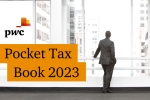Key takeaways
In 2024, ASEAN-6 Light Vehicle sales dipped 5.4% to 3.28 million units. Thailand and Indonesia saw sharp declines of 25% and 13% due to economic headwinds and tighter auto loans. Malaysia sales rose 2%, supported by strong economy as well as backlog of orders. In contrast, Philippines, Vietnam and Singapore witnessed robust growth, driven by economic recovery and new model launches. For 2025, a c.2% growth is expected for the region, though Indonesia and Thailand still face downside risks.
ASEAN-6 EV adoption is accelerating, surging from 9% in 2023 to 13% in 2024, fueled by government incentives and rising eco-awareness. Thailand and Indonesia are leading the charge, targeting EV manufacturing dominance by 2030, with Malaysia and Vietnam also making strides.
Chinese automakers are aggressively challenging Japanese dominance in ASEAN markets, rapidly gaining market share with affordable, cutting-edge electric vehicles.
The ASEAN Free Trade Area (AFTA) is enhancing regional automotive trade and encouraging automakers to optimize production networks across member countries.
ASEAN automotive players should pursue 3 strategic thrusts in today's dynamic market - operational excellence, business model reinvention, and strategic alliances.
Get in touch
Patrick Ziechmann
Partner, Deals Southeast Asia - Head of Automotive ASEAN Centre of Excellence, PwC Malaysia
Tel: +60 12 280 1871
Mohammad Mudasser
Director, Deals - Transformation, PwC Vietnam
Tel: +84 28 3823 0796, Ext. 3322









